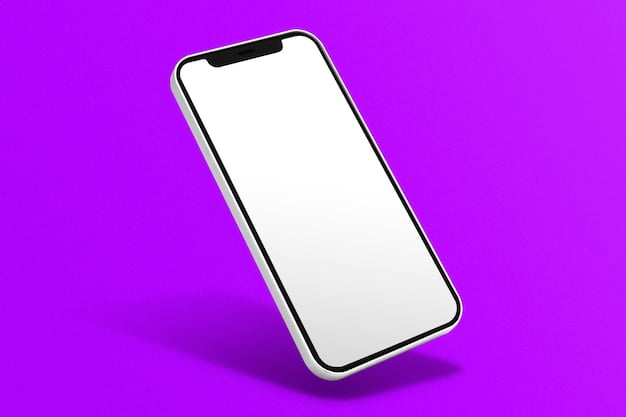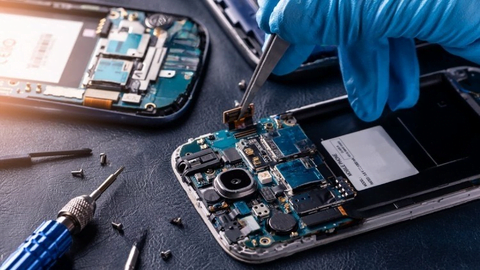
A couple of smartphone trends that went mainstream last year were the dearth of 18:9 aspect ratio displays and dual camera setups. They were all over the place in every budget range. OEMs like Apple even went ahead of the curve with the iPhone X and it’s no-bezels screen.
The budget segment also caught up to the trends with smartphones like Xiaomi Mi A1, which was the company’s first dual-camera phone in India, to LG Q6 and Honor 7X which feature 18:9 displays.
Currently, a user who plans to spend somewhere between Rs 10,000 to Rs 15,000 on a smartphone has loads of options.
We have compiled a list of some devices which will provide you a bunch of features without burning a hole in your pocket.
Xiaomi Redmi 5A
Perhaps one of the most affordable smartphone from the house of Xiaomi, the Redmi 5A is a bang for the buck. It’s got a 5-inch HD display and is powered by Qualcomm Snapdragon 425 chipset backed by 2GB/3GB RAM. It has an internal storage of 16GB/32GB which can further be expanded up to 256GB via microSD card.
Though we recommend you to get the 3GB RAM variant as anything lesser than that in this price range decreases the use cycle.
There’s a 13-megapixel rear camera and a front-facing 5-megapixel camera. The phone draws power from a 3,000 mAh battery which is more than sufficient to last for a day.
The Redmi 5A is quite possibly the best and the cheapest 4G smartphone you can get right now.
Read the full review: Redmi 5A
- Also read: The best smartphone under Rs 5,000 in India and why you should not buy it
Xiaomi Mi A1
Weight: 165g | Dimensions: 155.4 x 75.8 x 7.3mm | OS: Android 7.1 Nougat | Screen size: 5.5-inch | Resolution: 1080 x 1920 | CPU: Snapdragon 625 | RAM: 4GB | Storage: 64GB | Battery: 3080mAh | Rear camera: 12MP + 12MP | Front camera: 5MP
Xiaomi Mi A1 is the first Xiaomi phone with stock Android and is one of the most popular mid-range device of the year. It has a 5.5-inch full HD display with 2.5D curved glass coating on the top and runs on Android 7.1 Nougat. The company promised that the phone will receive the Android Oreo update by the end of 2017 and according to the recent reports it has started rolling out the beta version of the software.
The phone is powered by a Qualcomm Snapdragon 625 processor, 4GB RAM and an internal storage of 64GB which is expandable up to 128GB via microSD card.
On the camera front, the phone has a dual camera setup on the rear with a 12-megapixel wide angle lens supported by a 12-megapixel telephoto lens. A 5-megapixel front shutter with 36 smart beauty profiles and face recognition sits above the display.
The 3080mAh battery provides sufficient fuel to last for a day.
- Also read: Xiaomi Mi A1 review
Honor 9 Lite (32GB)
Honor’s 9 lite looks dapper in Sapphire Blue colour variant. It has everything going for itself in the design department with the shiny 2.5D glass on back and for Rs 10,999, it’s one of the better designed smartphones available right now.
The 18:9 aspect ratio display is vibrant and is reason enough to buy it. It also has a quad-camera setup. The front-facing cameras capture some good pictures while the rear one leaves much to be desired for. There’s no fast charge support which might be a deal breaker for some.
But for people who can turn a blind eye to these things, the 9 lite is a unique smartphone at this price.
Also read: Honor 9 Lite review
Moto G5 Plus
Weight: 155g | Dimensions: 150.2 x 74 x 7.7mm | OS: Android 7.0 Nougat | Screen size: 5.2-inch | Resolution: 1080 x 1920 | CPU: Snapdragon 625 | RAM: 3/4GB | Storage: 16/32GB | Battery: 3000mAh | Rear camera: 12MP | Front camera: 5MP
The Moto G5 Plus is the successor of the G4 Plus from Lenovo backed Motorola. It comes with a 5.2-inch full HD IPS LCD display with Corning Gorilla Glass 3 and runs on Android 7.0 Nougat with some customisations from Motorola. The device starts at Rs 14,999.
In terms of performance, the Moto G5 Plus comes with a Qualcomm Snapdragon 625 processor, Adreno 506 GPU, 3GB or 4GB RAM, 16GB or 32GB storage, microSD expansion support, 3,000mAh battery with Turbo charging and a fingerprint sensor.
The device sports a 12MP primary camera with f/1.7 aperture, dual pixel autofocus and dual LED flash, along with a 5MP front camera with f/2.2 aperture.
Read the full review: Moto G5 Plus
Honor 7X
Weight: 165g | Dimensions: 156.5 x 75.3 x 7.6 mm | OS: Android 7 | Screen size: 5.9-inch | Resolution: 1080 x 2160 | CPU: Kirin 659 | RAM: 4GB | Storage: 32/64GB | Battery: 3340mAh | Rear camera: 12MP + 2MP | Front camera: 8MP
The Honor 7X brings an 18:9 aspect ratio to the mid-range segment, along with dual-camera setup. Other than that, the camera onboard the 7X is a pretty good snapper while the slick metal unibody makes it feel like a premium smartphone.
It runs on the Kirin 659 chipset, which is claimed to be a tough competitor to the Snapdragon 625 backed by 4GB of RAM. It comes in two storage variants – 32GB and 64GB.
Only the 32GB variant falls under the 15K category. It is still a good choice for those who like playing with smartphone cameras but can’t afford more expensive phones.
source:-techradar





